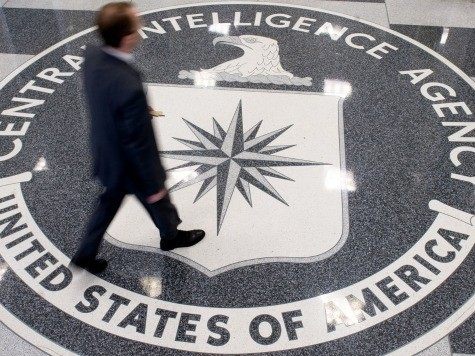The Central Intelligence Agency (CIA) is being subjected to a sweeping structural makeover by the Obama administration, which has less than two years left in power.
In announcing the reorganization in early March, Obama’s CIA Director John Brennan boasted that after the sweeping reorganization is implemented, the agency will be in the position to cover “the entire universe, regionally and functionally, and so something that’s going on in the world falls into one of those buckets.”
The changes are aimed at broadening the agency’s reach and expanding its cyber operations, Brennan said during a press conference at CIA headquarters.
However, Brennan’s bold plans may lead to more layers of bureaucracy that could eventually expand, says the liberal columnist and novelist David Ignatius in an op-ed piece for The Washington Post.
Ignatius, associate director and columnist for The Post, argues:
Parts of Brennan’s plan worry me, though. In trying to create a more responsive organization with better oversight, he may add layers of bureaucracy. And his plan to merge analysts and operators in 10 “mission centers” makes sense — but it could undermine the independence that encourages analysts to question whether operations in, say, Afghanistan are really working.
“What worries me is that the mission centers, as a new bureaucracy, will require an additional layer of management. Brennan proposes a stronger secretariat and executive director to monitor day-to-day activities,” he later adds. “It sounds reasonable, but a secret bureaucracy tends to grow in the dark like mushrooms. Beware a seventh-floor management team that becomes so top-heavy the building underneath buckles.”
Employees at the agency are not necessarily welcoming the changes with open arms and are said to be “nervous.”
Thousands of employees could be affected by the changes.
“There’s a lot of wait-and-see going on,” an unnamed former deputy director told Ignatius.
“A workforce that is notoriously adept at sabotaging change may hope to wait this one out — and pray that when Brennan’s successor arrives in fewer than two years, he or she will undo the plan,” mentions the article.
Former CIA chiefs who talked to the Post columnist said Brennan is expanding similar ideas with which they experimented in the past, taking them further than they could.
“CIA Director John Brennan has just done what many of his predecessors at the agency surely dreamed of doing over the past few decades, which is to put the existing organizational chart in a shredder and redo it,” notes the newspaper.
Some former directors and deputies have endorsed the far-reaching changes, according to the editorial.
Other CIA veterans and experts consider the changes to be among the most ambitious since the agency was founded nearly 70 years ago in 1947.
Critics consider makeover to be audacious given that Obama has less than two years left in his second term.
The Republican chairman of the powerful Senate Intelligence Committee, along with members of the Obama administration, welcomed the changes when Brennan announced them in early March.
“This reorganization was driven not by any institutional failure, but by the realization that the world has changed over the course of the last 70 years. In many ways, the Director’s proposal is long overdue,” Sen. Richard Burr (R-NC), the panel’s chairman, said in a statement.
The restructure plan is outlined in a March 6 memo to the CIA workforce titled “Our Agency’s Blueprint for the Future.”
It has received minimal public scrutiny because the media has not devoted much coverage to the reorganization.
Among the major components of the plan is the creation of ten new units within the CIA, dubbed “mission centers,” Brennan revealed.
The mission centers will “concentrate the agency’s focus on specific challenges or geographic areas, such as weapons proliferation or Africa,” he explained.
An assistant director will lead each of the ten missions. The assistant director will be responsible for overt operations, spying, analysis, liaison with foreign partners, and logistics within the mission’s jurisdiction.
Another major change is the formation of a new “Directorate of Digital Innovation” that is expected to keep tabs and capitalize on cyber technology advances that can be used to gather intelligence.
Follow Edwin Mora on Twitter: @EdwinMora83.

COMMENTS
Please let us know if you're having issues with commenting.